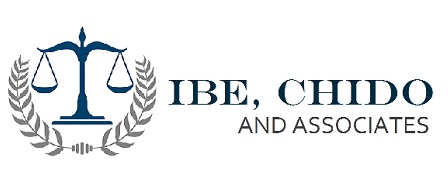HOW TO RECOVER DEBT IN NIGERIA BY A CREDITOR
Recovering debt in Nigeria can be a challenging assignment, but it is not unfeasible. There are varieties of means by which one can recover debt in Nigeria and they consist of legal action, Alternative Dispute Resolution (ADR), and through debt collection agencies. In this article, we will thrash out these methods in detail, together with the pros and cons of each and how to go about using them.
Legal action:
Legal action is one of the most efficient and effective ways of recovering debt in Nigeria. The Nigerian legal system makes available a choice of remedies for debt recovery, including the enforcement of judgment debt and the attachment of assets. One of the most widespread legal actions used for debt recovery in Nigeria is the enforcement of a judgment debt. This is done by obtaining a court order for the attachment and sale of the debtor’s assets. This is a fairly effective way of recovering debt, as it guarantees that the debtor’s assets are sold to pay off the debt. Conversely, legal action can be time-consuming and costly, and it may not always be the best option for recovering debt in Nigeria.
Alternative Dispute Resolution (ADR) Mechanism:
A different way of recovering debt in Nigeria is through ADR. This entails trying to reach an agreement with the debtor on how to pay off the debt outside the traditional litigation process. This can be realized through a variety of means, including mediation, arbitration, and negotiation. Mediation is a process where an unbiased third party helps the debtor and creditor come to an agreement on how to repay the debt. This can be a cost-effective and time-efficient way of recovering debt, but it may not always be successful.
Arbitration is similar to mediation, but the pronouncement of the arbitrator is binding. This means that the debtor is legally obliged to repay the debt according to the stipulations of the arbitration award. This can be an effective way of recovering debt, but it can be costly and time-consuming.
Negotiation is a process where the debtor and creditor try to reach an agreement on how to repay the debt without the participation of a third party. This can be an effective way of recovering debt, but it can also be time-consuming and may not always be successful.
Debt collection agencies:
An additional method of recovering debt in Nigeria is through the use of debt collection agencies. These are companies that focus in recovering debt on behalf of creditors. They use a variety of methods to recover debt, including negotiation, legal action, and the attachment of assets. They can also provide credit reporting services, which can help creditors to identify and recover debt from high-risk borrowers. Nevertheless, the use of debt collection agencies can be costly and may not always be successful.
Conclusion:
Recovering debt in Nigeria can be an exigent task, but it is not impossible. There are a variety of means by which one can recover the debt in Nigeria, including legal action, ADR, and debt collection agencies. Each method has its pros and cons, and the best alternative will depend on the precise circumstance of the debt. It is imperative to consider the cost, time, and likelihood of success when choosing a method for recovering debt. It is also important to seek professional advice before taking any legal action to recover the debt.
In summary, recovering debt in Nigeria can be done through legal action, ADR, and debt collection agencies. Each of these methods has its own advantages and disadvantages, so it is vital to consider the specific circumstances of the debt when choosing the most suitable process. It is also key to seek professional advice before taking any legal action to recover the debt.
Okpi, Ibe Chinedu is the Principal Partner in the Law Firm of Ibe, Chido and Associates ( www.ibechidoassociates.com.ng ) .Contacted via phone: 07069279374 or email: info@ibechidoassociates.com.ng
